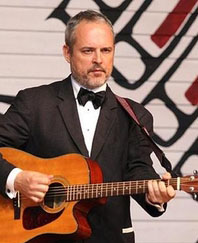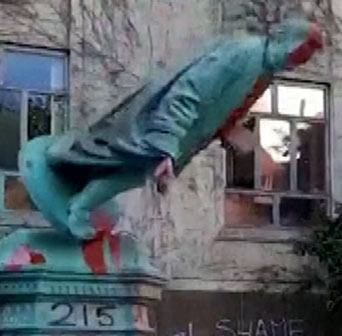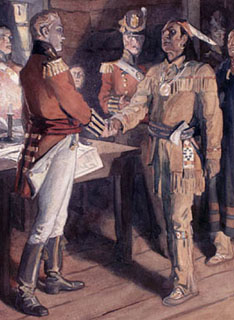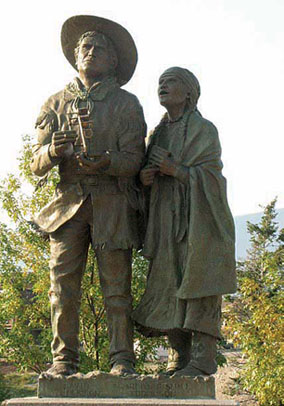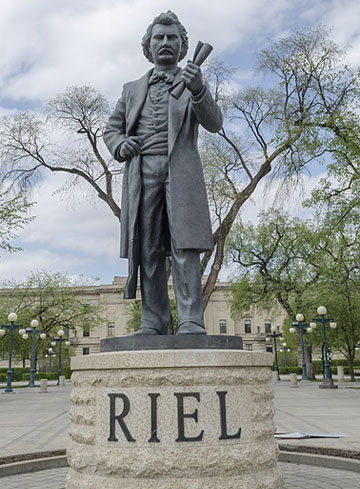Langevin, Macdonald, and Ryerson in the wake of the Kamloops graves : where do they belong in Canadian history?
Jun 11th, 2021 | By Randall White | Category: Ottawa SceneNORTH AMERICAN NOTEBOOK – RANDALL WHITE, FERNWOOD PARK, TORONTO. JUNE 11, 2021. I think Stephen Maher’s June 7, 2021 Maclean’s article, “John A. Macdonald can wait — We are at the beginning, not the end, of a process of reassessing our history“, says a number of good things on an important issue at the right moment.
The article has inspired me to quickly add a few unusually soon further notes to my own more modest thoughts of the same date on “We have not yet realized that the Indian and his culture were fundamental to the growth of Canadian institutions.”
Not just John A. Macdonald
One good thing about Maher’s “John A. Macdonald can wait” is that he points out how this particular “architect of the system” of “Indian Residential Schools” in Canada “looked to the United States, where residential schools were being used to destroy Indigenous communities, and imported the system.”
(Macdonald arguably did something similar with the economic development strategy often called his “National Policy” — a variation on the “American System” next door.)
Here in Toronto (as in other places), where clips of the tumbling Egerton Ryerson statue on the campus of the downtown university that still bears his name have lately haunted the local TV news, we also can’t forget that there were other reputed “architects” of the appalling residential schools system.
Similar thoughts may still linger in the capital city at Ottawa, where the “Langevin Block” was re-christened the “Office of the Prime Minister and Privy Council” on June 21, 2017, after “the Assembly of First Nations called for the building to be renamed, due to Hector Langevin’s role in the creation of Canada’s controversial Indian residential schools system.”
The broader assumptions of the societies in which they lived
Neither Langevin nor Ryerson have as big a reputation in traditional Canadian history as the first prime minister of the 1867 confederation John A. Macdonald. And that’s a good reason for a good journalist rightly concerned about keeping things not too demanding for many diverse readers to focus on Macdonald.
At the same time, the presence of more than one particular “architect” of the residential schools in Canada – and their deeper origins in the “Native American Boarding Schools” of the United States – suggest some kind of important broader historical reality to me. And hopefully this will become clearer as we, in Stephen Maher’s words, carry on with the current “process of reassessing our history, and filling in the silences that are needed to get at the truth.”
It may seem somehow comforting, for example, to identify a few individuals — such as Ryerson, Langevin, and Macdonald — to take the major blame for the residential schools. But my sense of the 19th century Canadian world they lived in (flowing especially from my current work-in-progress on “Democracy in Canada Since 1497” — now at least closer to completion than it has ever been before) is that their views on the future of the various Indigenous peoples of Canada largely reflected the broader assumptions of the societies in which they lived.
Some people in 19th and earlier 20th century Canada did see a more authentically Canadian (as opposed to colonial) vision of the future, more in the spirit of the northern fur-trade historian Harold Innis’s declaration of 1930 : “We have not yet realized that the Indian and his culture were fundamental to the growth of Canadian institutions.”
(The later life of the remarkable Northwest Company map-maker David Thompson and his Prairie Metis wife, Charlotte Small, watching the stars together at night in 1850s Montreal, seems like one provocative case in point to me.)
But to hold a few individuals like Ryerson, Langevin, and Macdonald somehow uniquely to blame for the appalling residential schools is, as it were, to let the wider history of Canada (and the United States and many other 19th century places) off the hook.
Macdonald as “Canada’s George Washington” has never been convincing
To take the case I know best myself, I am at the moment most interested in the history of democracy in Canada. I think that is the most relevant history for the Canadian future today. And democracy in Canada is not something that came all at once — or has even yet fully arrived..
Democracy in Canada (which in some ways arguably began with the matrilineal agricultural societies of the various St. Lawrence and Great Lakes Iroquoian peoples who first greeted Jacques Cartier and Samuel de Champlain in the 16th and 17th centuries) has come in pieces or stages. And it has arrived in the midst of the all too much appalling behaviour by human beings of all varieties, that defines all too much of the past of our species everywhere on planet earth.
The very colonial and British imperial John A. Macdonald, who wanted what became the first self-governing dominion of the global British empire in 1867 to be called the Kingdom of Canada, and who declared in the early 1890s “A British subject I was born and a British subject I will die,” has never struck me as deeply interesting or important or any kind of Canadian George Washington, as some have tried to turn him into.
My own perhaps too early vain attempt to at least begin to re-assess Macdonald’s place in the history of the future Canadian democracy appears in my now a-while-ago completed chapter on “Arduous Destiny : Canada’s alternative to the Great Barbecue, 1873-1896.”
Pierre Trudeau and “Cartier-Macdonald” … and Alexander Mackenzie’s Indian Act
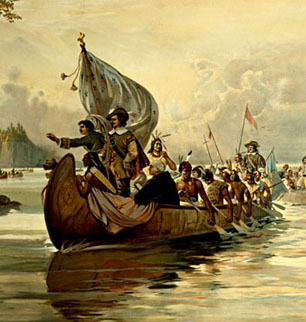
In any event again I think what Stephen Maher published in Maclean’s on June 7, 2021 is very wise : “We are at the beginning, not the end, of a process of reassessing our history.” For the time being I will just rest my own still rather vague case, with two final further thoughts about what Harold Innis liked to call “the complex problems of society” in modern Canada.
First, I learned from a tour of the fabled old East Block of the Parliament Buildings in Ottawa many years ago now that when Pierre Trudeau became Prime Minister of Canada in 1968 he moved not into John A. Macdonald’s old office, but into the adjacent old office of Macdonald’s indispensable French Canadian partner in the first federal government of the 1867 confederation, George-Etienne Cartier.
Unfortunately for Canada today, it has sometimes seemed to me, Cartier died far too early in his late 50s, in 1873. Among many other things, he was a supporter of the Metis (and Indigenous) leader Louis Riel in Manitoba and Saskatchewan, who John A. Macdonald’s Conservative government finally hanged for treason on November 16, 1885.
At the same time again, it was Alexander Mackenzie’s first Liberal government of Canada (1873 –1878) — not any of John A. Macdonald’s governments (1867-1873, 1878-1891) — that arguably started something just as tragic for Indigenous peoples as the residential schools.
Out of sheer laziness, I quote from the “Arduous Destiny” chapter in my current work in progress on “Democracy in Canada Since 1497” : “Alexander Mackenzie’s first Liberal government … has one great dark blot on its record. In 1876 the Liberal-dominated Canadian House of Commons passed ‘An Act to amend and consolidate the laws respecting Indians.’ This was the original ‘Indian Act’ which even with many subsequent amendments remains a profound source of trouble today … The 1876 Act was ‘a consolidation of previous colonial ordinances that aimed to eradicate First Nations culture in favour of assimilation,’ into a new settler society with still quite European habits. (And Hector-Louis Langevin played a role in trying to further this objective when he served as John A. Macdonald’s Secretary of State for the Provinces in the 1880s.)”
What does “Canada” mean … yesterday, today, and tomorrow?
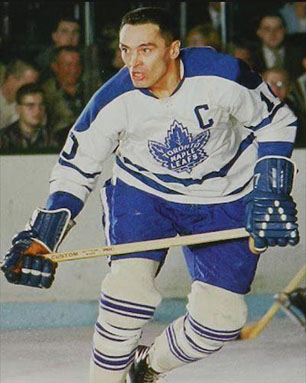
Whatever else, the Maclean’s Canadian news magazine today is quite different from the Maclean’s magazine I grew up with in the 1950s, 1960s, and 1970s.
I nonetheless think Stephen Maher’s June 7, 2021 article, “John A. Macdonald can wait … We are at the beginning, not the end, of a process of reassessing our history” is a very good place to start the process. It will gather strength over the next few decades. And at some point we will finally understand what it means that “Canada” itself is an Indigenous word .
Randall White has a PhD in political science from the University of Toronto. From the late 1960s to the early 1980s he worked as an Ontario public servant. He subsequently worked as an independent policy consultant for private and public sector clients at all three levels of government in Canada and the United States. He has written 11 books on Canadian history and politics, and is at work on a twelfth. He has served on the editorial advisory committee of the journal Ontario History, and on the selection panel for the Ontario Speakers’ Book Award. He has written articles for several periodical publications, on and off line, including the Globe and Mail, the Toronto Star, and Loonie Politics. His current writing on political history and key current issues in Canada’s most populous province appears on this counterweights site as well.
